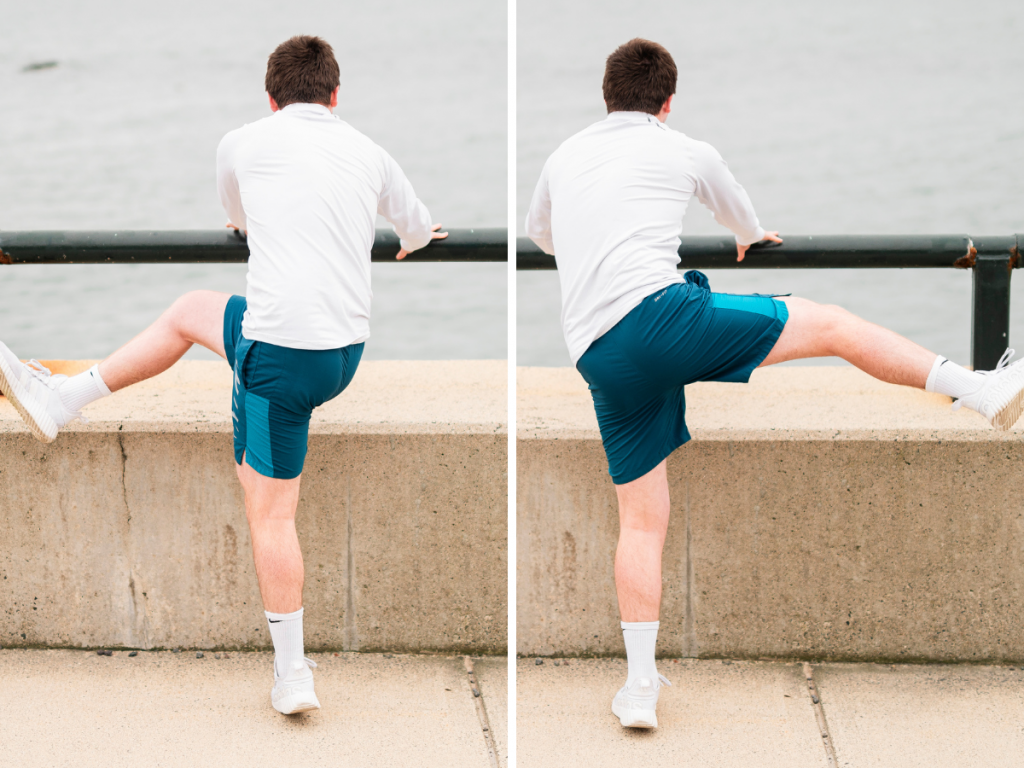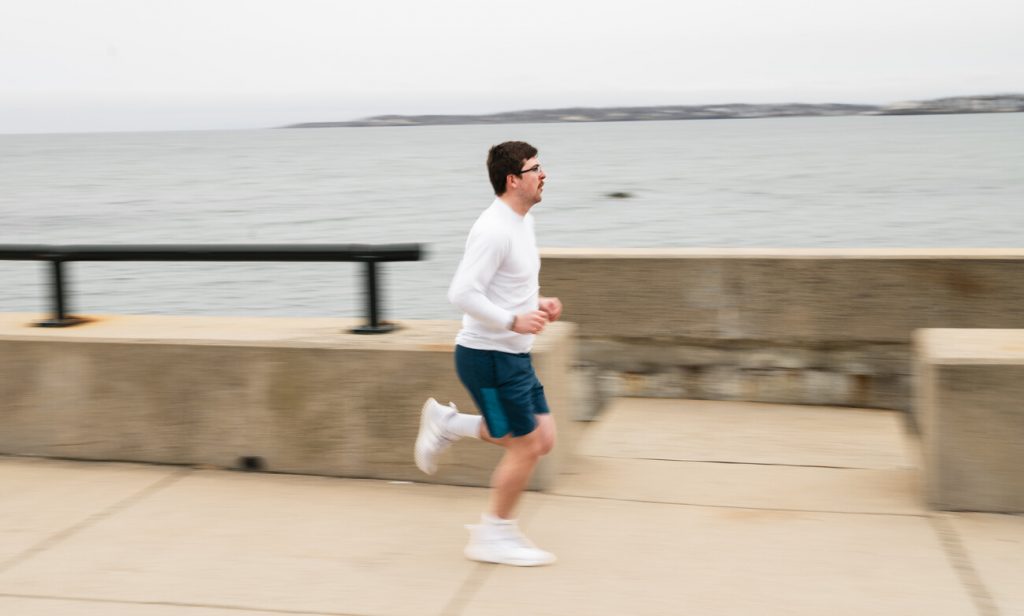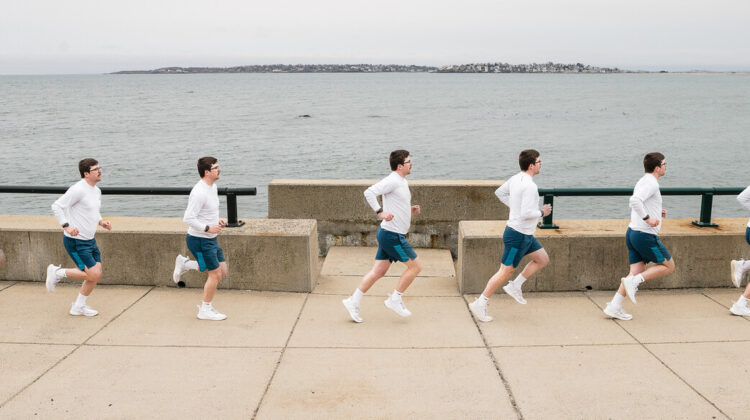“You’re insane!”
“That’s crazy!”
“I could never do that!”
I heard this all the time when I told people that I was a collegiate distance runner. More specifically, I heard it when I told them how many miles I ran, and the grueling workouts and races I took part in.
But nearly three years after graduating, and losing the end of my running career in college tothe pandemic, I now find the voices in my head telling me those same things.
After training consistently for three out of four seasons a year, every year since I began running in fourth grade, I’ve been (very) inconsistently trying to get myself back into it since the summer of 2021.
It’s safe to say that it has not been going well. And it’s because, for the first time, I am in the shoes (pun totally intended) of the people that used to tell me I’m a lunatic for running 5-mile races every weekend.
I used to tell everyone I talked to who wasn’t a runner that anyone can do it, no matter their current fitness level.
The response I always got went something like, “If I tried to run a mile right now, I’d be dead.”
Well yes, you’d be extremely winded and beaten up, but that’s because you’re not used to it. If you started with a quarter of a mile, or even walked every few minutes for a mile or two, once or twice a week, increasing the distance every other week by a small amount for several months, you’d be shocked at how quickly you can build up aerobic fitness.
People think they can’t pick up running because they don’t experience the results right away. But if you stick with it, you will feel like you are on top of the world and can conquer anything.
That’s the path I am currently trying to find my way back to. So whether you are in a similar situation, or are trying to get started for the first time, here’s some motivation to start that stopwatch and take that first step.

Goal-setting
Stop. Before you even think about lacing up your shoes, you absolutely need to have a goal in mind. If you end up starting a run without detailing goals like how far you want to be able to run, how fast, and maybe even what races you want to complete, you’ll be doomed from the start.
If there’s no plan and nothing to look forward to, then you could talk yourself into believing it’s not worth it because there’s no endgame or feat to accomplish.

Goals provide structure and a reason to run.
Ready for this? You can even start with something as simple as what I consider to actually be the hardest part: just getting out the door. Because once you are out of the house, you already feel like you have accomplished something.
Though it’s good to be ambitious with goals, it can get tricky if you go too far. For example, instead of trying to run 3 miles right out of the gate (extremely guilty of that over here), take baby steps. If I have a goal of being able to run 3 miles, I should be trying to set mini goals by running a half-mile or mile each time I go out for a few weeks. Once I feel that running that distance has become easier after repeating it multiple times, I can bump my runs up a half-mile, and continue that same process until my baseline runs reach 3 miles.
It is also extremely important to learn not to be ashamed of only being able to run a certain distance at the beginning. It won’t stay that way forever.
It’s just a long starting process that eventually puts itself in cruise control, as long as the work keeps getting put in. Think of it this way: If you put a large, empty bucket under a faucet, it’s going to take some time to fill up, perhaps a long time. But eventually, the bucket will overflow. That bucket will stay full and overflowing, as long as the faucet continues to run.
Start the work. Improve the work. Maintain the work.
Prepare, prepare, prepare…
Sometimes, what you do, or don’t do, before and after your run can have just as much of an impact on your performance as the running itself, especially if you are just starting out. Muscles don’t perform well when cold, and stretching and moving around beforehand will help everything move better and more cohesively.
I’ve learned the hard way a few times when I didn’t even do a small amount of stretching beforehand. It’s not a good time.
That also applies to after your workout. You should do some combination of stretches post-run to avoid tightening up. It’s also not a bad idea to get a foam roller to avoid as much soreness as possible. You can also try rolling a golf ball with the bottom of your foot, and a lacrosse ball for your hips and glutes.
You’ll thank me later.
Make sure to get a solid pair of running shoes, too. There are lots of stores now where employees will take a look at your walking pattern and find a shoe that has the proper support and cushioning for you.


Left, leg swings (swinging your leg from one side of your body to the other) help with hip mobility. Right, this alteration of a leg swing opens up hips and stretches out the hamstring.
A love/hate relationship
This is something you just have to come to terms with if you want to be a runner. One moment, I can feel unstoppable, and then a few minutes later, I wish I was 5 inches taller so I could be playing professional basketball. But that’s what makes it interesting and keeps you on your feet. Sorry, another pun, I can’t help it.
I’ve gone through horrible weeks of practice when I wasn’t able to hit the times on my runs that I wanted to. But then that weekend, I would have one of the best races of my life. All of a sudden, I’m so happy that I grinded through those difficult practices to get to this moment.
Still, it can be hard to stay motivated all the time, especially at the beginning.
Sometimes, when I try to go out for a jog, it feels like I never even used to run. After completing a mile, with my heart jumping out of my chest and legs feeling like jelly, I think, “How in the hell was I able to run 10 miles at a sub seven-minute per mile pace?”
I’ll do that again a couple times a week, maybe for a month if I’m lucky. Then I take a day off because “I’m too tired” or “I can’t fit it in my schedule.” Then that becomes two days off, then three until any fitness level I’ve built up is completely gone. Rinse and repeat.
It’s hard not to feel “washed up” after barely getting through something that you were used to completing with ease just a few years ago, and it’s even harder in the moment to remember that it took a lot (and I mean a lot) of work to get to that point. I’ve always considered myself a perfectionist, wanting instant gratification and to be good at something immediately.
But, that isn’t how it works. I have to constantly remember all of the work I put in, and remind myself that I did it before, and I can do it again. Quitting might feel great in the moment, but over time, you might come to regret it.
Whether we are trying to go out for a run daily or every other day, we need to constantly remind ourselves of our goals, why we started, and that each day makes us better.


